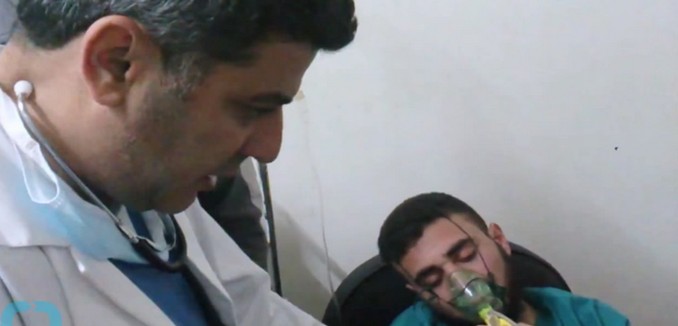U.S. and European officials have expressed concerns about Syria’s chemical weapons program after a watchdog revealed that it found traces of deadly nerve agents at sites that were not previously declared by the Damascus regime.
The director-general of the Organization for the Prohibition of Chemical Weapons (OPCW), Ahmet Uzumcu, wrote in a summary of a classified report that most of the 122 samples that the OPCW collected at multiple sites in Syria “indicate potentially undeclared chemical weapons-related activities.”
According to Colum Lynch and David Kenner, writing in Foreign Policy, the new OPCW report found that the Syrian government “failed to provide sufficient access to senior leaders in its chemical weapons program or to adequately account for 2,000 aerial bombs that Syria acknowledges were designed to deliver mustard gas.” Kenneth Ward, the American representative to the OPCW, said that the regime of Syrian President Bashar al-Assad had launched “a calculated campaign of intransigence and obfuscation, of deception, and of defiance,” and added that the samples were “indicative of production, weaponization, and storage of [chemical warfare] agents by the Syrian military that has never been acknowledged by the Syrian government.”
After launching a lethal sarin gas attack against a Damascus suburb in August 2013, the Assad regime agreed to get rid of its nerve agents under the supervision of OPCW, which announced in the summer of 2014 that Syria’s declared chemical weapons stockpile had been removed. While Secretary of State John Kerry said in 2014 that, due to this deal, “we got 100 percent of the chemical weapons out,” the Assad regime has continued to use chlorine gas, and traces of sarin gas and VX nerve agent were found in May 2015 at facilities that Assad had not declared.
The OPCW report also concluded that the Assad regime used chlorine in at least two separate instances: once in April 2014 and again in March 2015. These attacks were in violation of United Nations Security Council Resolution 2235, which calls for international action, including possible sanctions, in the case of continued chemical weapons use by the Syrian regime.
The Wall Street Journal reported in July 2015 that American intelligence officials confirmed that Assad remained in possession of chemical weapons despite the agreement. One of the factors given for the deal’s ineffectiveness was Syria’s ability to control the sites that inspectors could visit.
The Wall Street Journal’s chief foreign correspondent Jay Solomon said on MSNBC on Monday that Obama chose not to enforce the red line after Iran, which is the Syrian regime’s principal sponsor, threatened to pull out of nuclear talks if the U.S. struck their client, Assad. In his pursuit to bring the U.S. closer to Iran, Solomon wrote in his new book The Iran Wars, Obama ordered the CIA to cut off contacts with Iran’s Green Movement in 2009 and terminated programs that documented Iranian human rights abuses.
[Photo: wochit News / YouTube ]




